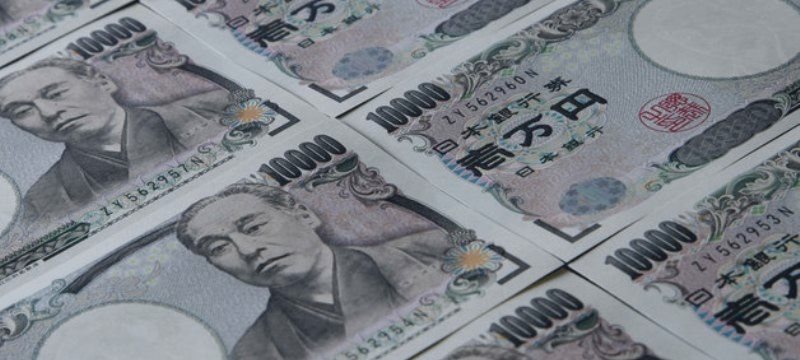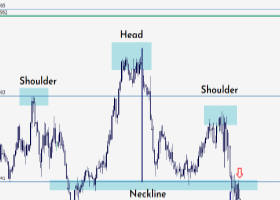
Latest Greek Twist Sends Euro Falling With Aussie as Yen Climbs
The euro started another week on a declining note, while the yen strengthened, as the latest twist in the Greek bailout saga reaffirmed demand for haven investments. The Australian and New Zealand dollars retreated.
The 19-nation euro dropped 0.6 percent to $1.1097 by 6:01 a.m. in Tokyo, losing 0.9 percent to Japan’s currency. The yen added 0.5 percent to 122.22 per dollar, while the Aussie and kiwi fell at least 0.3 percent. Most Asian stock index futures climbed in trading at the end of last week, as U.S. and European shares jumped. U.S. crude ended Friday at $52.74 a barrel.
Greece was given three days to enact economic reforms or face being ejected from the euro, with finance chiefs in the bloc refusing to engage on more bailout aid before the changes are passed. A deal on Iran’s nuclear program may be announced as soon as Monday, after last-minute technicalities prevented an agreement on Sunday. China is due to report trade data after two successive days of gains in the local stock market, where around half of the members were halted following the recent selloff.
“We’ve got yet another deadline, putting the ball back in the Greek court. Markets will be relatively reluctant to call the deal solved,” Sam Tuck, a senior currency strategist in Auckland at ANZ Bank New Zealand Ltd., said by phone. “We’ve got a watching brief on China. It’s positive that the authorities didn’t feel the need to do anything over the weekend but markets are still clearly nervous and we need to see most of the stock market open. There’s still lots of halts.”
Very Bad
The euro dropped to 135.58 yen, after soaring 2.3 percent on Friday, with Finnish Finance Minister Alexander Stubb saying failure to meet the latest deadline could result in Greece’s suspension from the currency union.
The Aussie fell 0.4 percent to 74.15 U.S. cents, close to its weakest level since 2009, while the kiwi was down 0.4 percent to 67.02 U.S. cents following its first weekly advance in 12 weeks.
Greece views the euro area’s demands, as expressed in a text from the Eurogroup, as very bad, according to a government official who spoke to reporters on the condition of anonymity. Greek Prime Minister Alexis Tsipras and German Chancellor Angela Merkel aired their differences in a meeting in Brussels Sunday, the official said.
The currencies of oil-exporting nations Canada and Norway were down at least 0.2 percent in early Monday trading.
Iranian Stocks
Four officials party to the Iran talks said legal complexities and technicalities delayed agreement on a deal that could result in an increase in Iranian crude on world markets. The officials asked not to be named in line with diplomatic rules. Iran’s benchmark index climbed 1.2 percent on Sunday to a three-month high.
Futures on the FTSE China A50 Index traded in Singapore late Friday added 0.2 percent, while contracts on China’s CSI 300 Index jumped 8.4 percent. The Shanghai Composite Index ended last week up 5.2 percent following three weeks of losses, while the Hang Seng China Enterprises Index, a gauge of mainland Chinese stocks listed in Hong Kong, climbed 6.8 percent on the last two days of the week. Futures on the Enterprises Index rose 0.1 percent in most recent trading.
While Chinese shares have tumbled into a bear market, shedding more than $3 trillion in value over the past few weeks, they’re still no bargain to the likes of BlackRock Inc., UBS Group AG and Templeton Emerging Markets Group.
Templeton’s Mark Mobius says mainland stocks need to fall further before they’re worth buying, while Russ Koesterich, chief investment strategist at BlackRock, said in a July 10 interview that the market hasn’t gotten near a level approaching fair value.
Nikkei Futures
Nikkei 225 Stock Average futures rose 0.7 percent to 20,000 by 3 a.m. in Osaka Saturday. Contracts on Australia’s S&P/ASX 200 Index added 0.6 percent in recent trade, while futures on the Kospi index in Seoul were up 0.5 percent. Hang Seng Index futures fell 0.2 percent.
As well as the Chinese trade data, Japan is due to report on industrial output Monday and Australia posts data on credit cards.
The Standard & Poor’s 500 Index advanced 1.2 percent on Friday, paring earlier losses to leave it little changed on the week, while the Stoxx Europe 600 index rose 2 percent to leave it up 1.4 percent last week. Yields on 10-year U.S. Treasuries rose eight basis points, or 0.08 percentage point, to 2.40 percent, while similar maturity bund rates jumped 18 basis points to 0.90 percent.
Greece Disappointment
Risk-off trades will likely dominate bond markets Monday with investors “disappointed there’s no concrete deal” on Greece, said Peter Chatwell, a fixed-income strategist at Mizuho International Plc.
The premium demanded on Italian debt over Germany’s narrowed by the most in almost three weeks July 10 after Greece’s reform proposals appeared set to advance negotiations. New Zealand government bonds due in a decade were little changed in early trade, with yields up one basis point to 3.49 percent Monday.
U.S. equities maintained gains Friday after Federal Reserve Chair Janet Yellen said in a speech that she still expects to raise interest rates this year and repeated that the subsequent pace of increases will be gradual. The Fed is moving cautiously toward its first interest-rate increase in almost a decade as Yellen weighs conflicting pressures at home and from abroad.
Rate Outlook
“I want to emphasize that the course of the economy and inflation remains highly uncertain, and unanticipated developments could delay or accelerate this first step,” Yellen said in the text of a speech Friday in Cleveland.
The Fed is “dying” to tighten monetary policy as soon as September given the strides being made in the economic recovery, said Byron Wien, vice chairman of advisory services at Blackstone Group LP.
The probability of a Fed rate increase at its December meeting moved
up to 67 percent from 54 percent on July 8, according to futures data
compiled by Bloomberg. For September, the odds increased to 33 percent
from 21 percent. https://www.mql5.com/en/signals/111434


